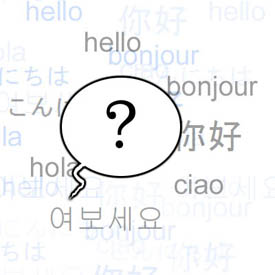
 It’s long been said that Britain and America are nations separated by a common language. And it’s those uncommonalities which are having their affect on me.
It’s long been said that Britain and America are nations separated by a common language. And it’s those uncommonalities which are having their affect on me. I consider myself bilingual. No, it doesn’t mean that. Wash your mouth out and buy a dictionary. I speak two languages—English and American. The extent to which American-English and English-English go off in different directions can be quite shocking. I’m pretty fluent in American these days. I use and say the words just like Americans do. I pronounce lever the same way I was say `feather’, and not with a hard E. I use American phrases. I know not to go into a Starbucks and ask for “a spot of tea,” because I’ll end up with a tea stain on a napkin. I ask for directions to the restroom and not the toilet. I mispronounce Worcestershire sauce which kind of sounds like I’m doing an impression of leaves being blown in the wind. I’ll even toss in the occasional “Yee Hah!” to express happiness. I do all this so that I can be understood by my fellow Americans and not suffer the indignity of a blank stare after I’ve said something. Americans are lovely people but they don’t do well with interpreting other people’s lexicons. It’s very much of a no-go situation. Say it their way or forever be stuck in the doorway of the moment unable to move forward. So I make concessions and an effort to be understood, although I don’t do the accent. I’m only willing to go so far.
As I stare down the barrel of my 15th anniversary in the US, I’m hitting a snag language-wise. I’m kinda forgetting which words are the English version and which are the American. The word oregano is one such word that is pronounced totally differently. I learned that to my embarrassment many years ago while trying to buy herbs for a recipe. The other week, I totally blanked on which pronunciation was the American way and which was the English way. I didn’t have Julie with me and I was stuck in the moment as my mental hard drive crashed and rebooting failed to help. I stood in the middle of a store saying oregano over and over and not having a clue if what I was saying meant anything to anyone.
This isn’t the first linguistic brain-fart I’ve suffered. It happens a lot when I’m writing. As I flit between stories featuring American and English characters, I sometimes get confused which words (especially slang words) are English in origin and which are American. I have to send emails to friends and spring a word or phrase on them and ask them if it means anything to them. I called my mum the other week to help me out with this issue and said, “If I were to call you a douchebag, what would you say?” Apparently, she had plenty to say which could be understood in any language. Maybe I should have started the conversation with more of a preamble. Another lesson learned.
I’m now facing a horrible situation. I’m losing a part of my Englishness. I’m working so hard to speak American, I’m losing my own heritage. Worse still, it’s not like I’m making a full transmogrification into a full-blooded, stars and stripes American. I’m stuck somewhere in the middle, neither one thing nor the other. I feel like some failed science experiment, trapped in a nether state between one form and another. Linguistically speaking, I no longer speak American-English or English-English, but a nasty hybrid that can only be termed as Simon-English or Simonese. While Simon-based languages might sound exotic, no bugger can understand a word of it. This is no way to go through life.
As time goes on, I can only see this problem worsening and a meltdown is inevitable. Like most celebrities, I’ll have to go to rehab, but for me it will be language rehab (coming to VH1 this fall/autumn—see I’m doing it again). I’ll have to detox and learn English all over again, but it’s only a Band-Aid solution. Give it another ten years and I’ll be in the same position again.
I do see a possible solution and that’s just to give up English in all its forms altogether and learn a completely new language—like Spanish.
Ay, Dios mio! Muy peligroso.


Consider the British actors who get jobs on American TV and have to change their accents as well as their vocabulary. I don’t know how they keep track of who they are at any given time. Hang onto your accent and you won’t lose your identity. Americans are gaga over British accents, so it adds hugely to your charm potential.
In my household we’re addicted to British TV crime dramas, but half the time we don’t know what the characters are talking about (our British slang dictionary comes in handy), and we have to turn on closed captioning when the accents become incomprehensible.
I won’t lose the accent, but I do use American words so that I’m understood. 🙂
Simon, the next time you can’t remember which pronunciation is “Ammercan,” say them both to yourself. The elegant sounding one is the English-English and the harsh sounding one is the American-English.
Hope that helps!
Kathy
Thanks for the top tip. 🙂
Dana here: “I called my mum the other week to help me out with this issue and said, ‘If I were to call you a douchebag, what would you say?'” Oh, dear…
Sometimes, you need a hit people between the eyes…